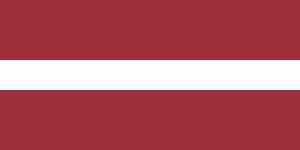Difference between revisions of "Language/Standard-latvian/Grammar/Adjectives"
m (Quick edit) |
m (Quick edit) |
||
| Line 56: | Line 56: | ||
<br><hr>If you have any questions, please ask them in the comments section below.<br>Please feel free to edit this wiki page if you think it can be improved. 😎 | <br><hr>If you have any questions, please ask them in the comments section below.<br>Please feel free to edit this wiki page if you think it can be improved. 😎 | ||
==Related Lessons== | |||
* [[Language/Standard-latvian/Grammar/Questions|Questions]] | |||
* [[Language/Standard-latvian/Grammar/Pronouns|Pronouns]] | |||
* [[Language/Standard-latvian/Grammar/Future-Tense|Future Tense]] | |||
* [[Language/Standard-latvian/Grammar/Conditional-Mood|Conditional Mood]] | |||
* [[Language/Standard-latvian/Grammar/Negation|Negation]] | |||
* [[Language/Standard-latvian/Grammar/Nouns|Nouns]] | |||
* [[Language/Standard-latvian/Grammar/Gender|Gender]] | |||
{{Standard-latvian-Page-Bottom}} | {{Standard-latvian-Page-Bottom}} | ||
Revision as of 23:07, 25 February 2023
Hi Standard Latvian learners! 😊
In today's lesson, we will be discussing adjectives in Standard Latvian. Adjectives are words that describe or modify nouns and pronouns. They can be used to give more information about the noun or pronoun they are modifying. In Standard Latvian, adjectives have a few different forms depending on the gender, number, and case of the noun or pronoun they are modifying.
Gender
Adjectives in Standard Latvian have three genders: masculine, feminine, and neuter. The gender of an adjective is determined by the gender of the noun or pronoun it is modifying. For example, if the noun or pronoun is masculine, then the adjective must also be masculine.
Masculine
Masculine adjectives usually end in -s or -š. For example, the adjective "lab" (good) is masculine and ends in -s.
Feminine
Feminine adjectives usually end in -a or -e. For example, the adjective "labā" (good) is feminine and ends in -a.
Neuter
Neuter adjectives usually end in -u or -i. For example, the adjective "labu" (good) is neuter and ends in -u.
Number
Adjectives in Standard Latvian can be singular or plural. The number of the adjective is determined by the number of the noun or pronoun it is modifying. For example, if the noun or pronoun is singular, then the adjective must also be singular.
Singular
Singular adjectives usually end in -s, -a, or -u. For example, the adjective "lab" (good) is singular and ends in -s.
Plural
Plural adjectives usually end in -i or -as. For example, the adjective "labi" (good) is plural and ends in -i.
Case
Adjectives in Standard Latvian can be in the nominative, accusative, dative, or genitive case. The case of the adjective is determined by the case of the noun or pronoun it is modifying. For example, if the noun or pronoun is in the nominative case, then the adjective must also be in the nominative case.
Nominative
Nominative adjectives usually end in -s, -a, or -u. For example, the adjective "lab" (good) is in the nominative case and ends in -s.
Accusative
Accusative adjectives usually end in -u or -i. For example, the adjective "labu" (good) is in the accusative case and ends in -u.
Dative
Dative adjectives usually end in -am or -em. For example, the adjective "labam" (good) is in the dative case and ends in -am.
Genitive
Genitive adjectives usually end in -a or -e. For example, the adjective "labā" (good) is in the genitive case and ends in -a.
If you have any questions, please ask them in the comments section below.
Please feel free to edit this wiki page if you think it can be improved. 😎
Related Lessons
